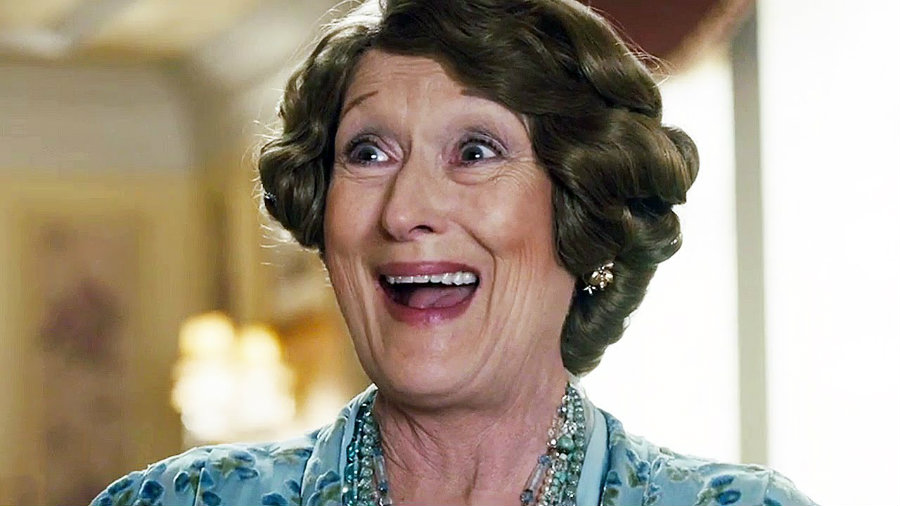“Florence Foster Jenkins” is the new movie from director Stephen Frears, who also directed The Queen and Philomena. The film will reach American theaters today, August 12, and so far, has mixed reviews.
Many critics have delighted on Meryl Streep performance as Florence, a woman that in the forties tried to become an opera diva, but had a terrible voice.

In its review, the Wall Street Journal gives credit to Streep for having the talent to make the audience care about the eccentric Florence.
However, it notes, Simon Helberg (Howard Wolowitz in The Big Bang Theory) also gives an edge to the film with his performance as the American-Mexican pianist who accompanied Florence during her recitals.
Nonetheless, the Times Tribunal is less amicable with the movie. In its review, it states that “no every quirky true story needs a biopic” also claiming the film wants to make believe that critique is a horrible phenomenon and that “that everyone who puts themselves out there deserves a participation trophy and a standing ovation” for only trying.
The New York Post Review
The NY Post offers a unique point of view since the paper is featured in the movie. On October 25, 1944, Florence rented Carnegie Hall for a recital. Earl Wilson, a NY Post writer, managed to get into the theater.
He had tried many times in the past to attend one of Florence’s recitals but was always turned down by her common-law husband, St. Clair Bayfield (played by Hugh Grant in the movie). The next day, a review appeared in the paper called “It Happened Last Night.”
“‘Lady Florence,’ or ‘Madame Jenkins,’ as she likes to be called if you are thinking of her as an artiste, indulged last night in one of the weirdest mass jokes New York has ever seen. She gave a quavery recital at Carnegie Hall, on a stage filled with flowers till it resembled an expensive mortuary” wrote Wilson.
In an attempt to prevent her from reading the critique, Bayfield bought all the copies of the newspaper that were in the area where Jenkins lived.
However, she still found one copy in a dumpster. In the film, she passed out on the street after reading it and died a month later. This did not happen to the real Florence, who did die after the recital, from syphilis she had been suffering since she was very young. As the Post puts it the film “gleefully implies that Earl Wilson killed her.”
Florence Foster Jenkins
Nascina Florence Foster was born July 19, 1868. Her father, Charles Foster served a term in the state House of Representatives, from 1883-84, and was also a business person involved with railways and directed the Wyoming National Bank.
As a child, Florence became a piano prodigy, even playing in the White House from President Rutherford B. Hayes. An arm injury, however, would destroy her dream of being a professional pianist.
In 1885 she married Dr. Francis Thornton Jenkins, who, on her wedding night gave her syphilis. It is believed that the treatments of arsenic and mercury are what damaged her voice and made her an “eccentric” in her later years. The pair divorced in 1902.
When her father died in 1909, Florence inherited an estate worth $1.5 million which was later used to fund her singing career. That same year Florence met and began a relationship with St. Clair Bayfield, who would become her manager.
Sources: The Wall Street Journal
